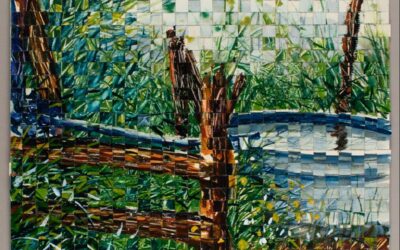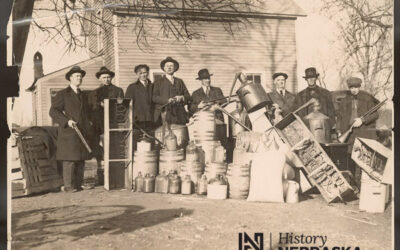The question of government support for tree planting projects was one which has frequently arisen since the inception of Arbor Day in 1872. J. Sterling Morton, founder of the holiday, addressed himself to this matter while he was serving as Secretary of Agriculture in the cabinet of President Grover Cleveland. In a letter to J. J. Anderson of Wahoo, Nebraska, Morton outlined his thoughts on the subject. Copies of the letter are found within the Morton papers in the State Archives, Nebraska State Historical Society. The text follows:
“Dear Sir: you suggest that the government should engage in the planting of timber belts for the amelioration of the rigors of climate. There is no question as to the utility of forest groves, roadside rows, and hedges, in modifying climatic conditions and influences. And there is no citizen of the United States who, during the last forty years, has taken a more active and profound interest in arboriculture than the writer hereof, who, from the institution of Arbor Day in January, 1872, down to date, has labored faithfully to inculcate in the public mind the value of tree-planting and forest conservation all over the American Union.
“But I cannot agree with you that tree-planting is a business for the Government of the United States to engage in, any more than corn-planting, digging irrigation ditches, or exterminating Russian Thistles. Individual enterprise or corporate capital can bring about all that the citizens in any particular township, county, or state may desire in the way of reafforesting the country whenever, self reliantly, they enter upon such arboreal labors. Each farm, village lot, street in town, and roadside throughout the country, and every country home should be embellished by planting trees; and the people who are to enjoy the shade in summer and the shield in winter, which they will afford, should themselves be willing to liquidate their costs.
“The tree is a democrat. It will grow as luxuriantly and extend as benign a shield in winter and shadow in summer beside the dugout or cabin of a pioneer on the prairies, as it will on the lawn of a palace. The tree makes no distinction as to the rank, the condition, or the politics of its planter, but grows for all and blesses all whenever, and wherever it is properly planted and cared for…
“Expressing the hope that you will continue to use your influence and efforts in behalf of arboriculture everywhere, and assuring you of my profound interest in the matter, I remain, with great respect, faithfully yours,
J. Sterling Morton, Secretary.”



